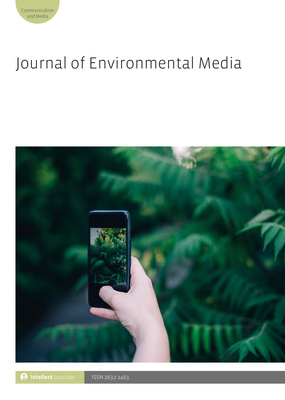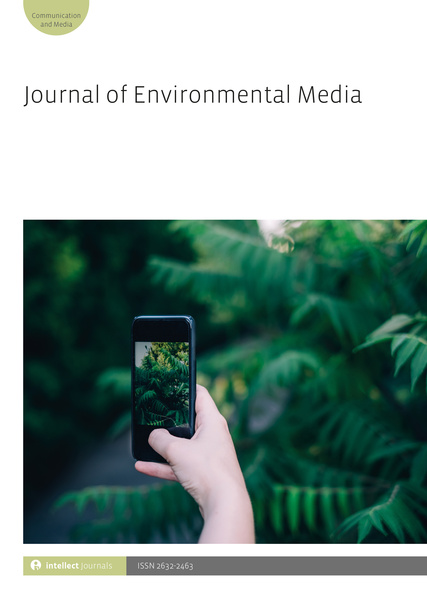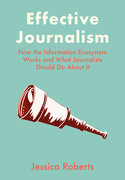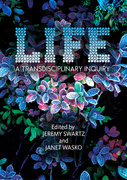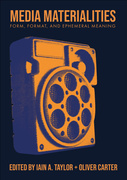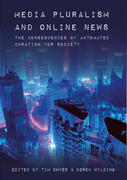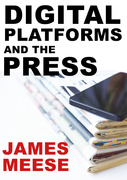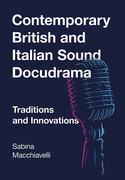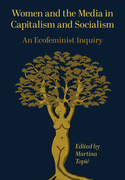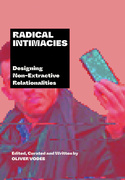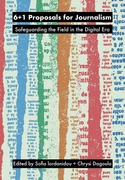Special Issue Call for Papers
Journal of Environmental Media (6.2)
'Care-ful convening: towards low carbon and inclusive knowledge sharing'
The consequences of human-induced climate change, the extinction of flora and fauna, pollution, environmental predation, and injustices are causing a spectrum of constraints, shrinkage, alteration and loss (Murphy, 2017; Elliott, 2018; Dokumaci, 2023). In response, people are figuring out how to think, communicate and act differently to account for damages done by systems whose human, more-than-human, and planetary harms are fueled by petrocultures (Chapman and Ahmed 2021; Gomez-Barris 2018; Táíwò 2022). Carbon-concerned researchers, professionals, and citizens are advancing necessary shifts, including designing and implementing alternative communication and gathering forms. Our call invites scholars across disciplines to explore the articulation between media and new forms of collaborative and non-extractive ways of knowledge exchange and communication.
Alternative histories of digital networks and convenings invite us to radically recenter community, care and human needs and aspirations rather than capital accumulation, hyper-mobility, and efficiency. In addition to making arguments for what is needed and why, we are eager to illuminate what is being done and how. This callout seeks cracks and opportunities: what does care-ful convening look like considering the entanglement between platforms and the global supply chains, extractive industries and capitalist geopolitics that have led to climate breakdown?
We find inspiration in Arseli Dokumaci's (2023) exploration of ‘activist affordances’ that bridge disability studies with our shrinking planet and activism that centres care (Lakshmi Piepzna-Samarasinha 2018), pleasure (Adrienne Maree Brown 2019) and rest (Hersey 2022). The decolonial work carried out by The Civic Laboratory for Environmental Action Research (CLEAR) in Canada, and the praxis promoted by communities like Virtually Connecting (Caines, 2016). We are intrigued by academics who travel low and slow (Knox, 2019; Conti 2021) and aim to decarbonize conference travel (Klöwer et al. 2020), communication systems, and research (Jekanowski, Pasek and Elliott 2022; Miya, Rockwell and Rossier 2021). We are grateful to participate in Low Carbon Research Methods Group and LIMITS initiatives for research exchange both online and off.
The constraints of just decarbonization are challenging long-standing colonialist and ableist mobility norms that have propelled people to travel far and wide to connect. Now, to reduce carbon emissions (Jäckle, S. 2022; Pasek, Roehl and Wellum 2020), increase accessibility (Bastian, 2021; Wu et al., 2022), and mitigate the spread of COVID-19, more conferences and professional encounters are taking place online. However, while formal aspects of virtual conferences might be perceived as “better than expected” (Niner and Wasserman 2021), a significant number of participants express concern that it is challenging to build meaningful connections in online events (Bray et al. 2022; Seidenberg et al. 2021). Contributors to this special issue will be invited to discuss the practicalities of organizing such virtual communication spaces, the philosophies and processes that animate such spaces and their materialities.
How, to what extent and for whom do these digital technologies change knowledge sharing? We seek contributions, taking an intersectional perspective, which showcases creative possibilities of care-ful convening without romanticizing the constraint or the ability to thrive amidst institutional scarcity and political violence. This special issue will bring to the foreground questions about ethics and methodologies, such as: What technical, organizational, and communicative approaches will be restorative for living beings and the planet? Who needs to be in conversation with whom, and by what media? What types of new media platforms and offline programs will challenge uneven and oppressive power dynamics that contribute to environmental harm? How do we know when something ‘works’? And more broadly, how does care-ful convening probe taken-for-granted assumptions about the “contours of ‘media’” (Brodie et al. 2023) and open out to new possibilities?
Form and Format:
We welcome diverse submissions from across disciplines and invite contributions to one of the three categories below. Authors are welcome to submit to multiple categories. We encourage collaborative submissions, particularly those that cross academic boundaries, institutional borders, and geographic locations. We are eager to accept pieces that: bring together the past, present, and future; hold complex tensions; showcase alternative value systems to challenge dominant modes of relating steeped in racism, patriarchy, capitalism, extractivism, and colonialism; provoke new ways of engaging with carbon, inclusivity, and knowledge exchange; and that that inspire reflectivity, justice-driven advocacy, and care. Black and white images of any kind are welcome, including photographs, sketches and drawings, graphs and charts.
If you are considering submitting an abstract, please read the full version of the Special Issue Call for Proposals, which is linked at the top of this tab.
Analyse – Articles (5000–7000 words)
These are research articles and/or critically reflective essays. We are open to articles written in traditional disciplinary writing styles as well as non-traditional formats and writing styles, including first-person prose and creative essays.
Submit to the Analyse section:
Please send us an abstract of up to 250 words and three keywords no later than 15 January 2024, via this submission form (the deadline for abstracts has now passed). Authors will be notified of the editorial team’s selections in February. Full drafts are due 1 July 2024 for peer review. Please review the Journal of Environmental Media’s submission guidelines and submit via this form: https://forms.gle/eLh6sJCNHDsjVebc7
Actualize – Fieldnotes (500–1500)
To examine and explore what is being done and how, these entries share documentation and reflections from media encounters that exemplify convening in more care-ful, equitable and environmentally conscious ways. Key takeaways from these experiences can be shared as instructions for alternative convenings, lessons learned, undergirding concepts, etc. Have you been to a gathering that inspired you, made you think differently and deserves some critical thought and attention? During the course of your research, have you had a convening of technology and people that surprised you, rearranged your thinking and opened up a new way to make and disseminate knowledge? We invite memories and reflections, sketches, field notes, portraits of software and diary entries.
Fantasize – Speculative Proposals (500–1500)
We welcome visions of future convenings and forms of convening. This can be grounded in something you’d like to implement right here, right now on earth or can suggest a speculative convening that takes place in a fantastical imaginary realm.
Submit to the Actualize or Fantasize section:
Please send the complete submission by 15 May 2024. Submit via this form: https://forms.gle/gEWGKMTobousTQQAA
Publication of Issue 6.2: October 2025
Guest editors:
Antoine Hardy (Centre Emile-Durkheim)
Shirley Roburn (York University)
Kate Elliott (Simon Fraser University)
Alexandra Lakind (American Council of Learned Societies)
Elizabeth Miller (Concordia University)
General Call for Papers
Call for Papers: Journal of Environmental Media
The Journal of Environmental Media (JEM)’s new editorial team invites submissions for both full length peer-reviewed articles (7000 words), shorter commentary pieces (1000-2000 words), and book/media reviews (1000-2000 words).
JEM offers a scholarly platform to bridge work in environmental studies, social justice, the environmental humanities, social sciences and media and communication studies, focusing on the role of media in our understanding and perception of the environment, environmental politics, and related social issues. It takes a pluralistic and interdisciplinary approach to these topics, soliciting contributions from media, film and cultural studies, environmental justice, infrastructure and materiality studies, STS, media anthropology and science, environmental, health and risk communication. Its scope includes a range of environmental issues such as climate change, environmental racism, energy infrastructures, health effects, biodiversity, climate migration and e-waste.
We are excited to see formally innovative submissions that blur disciplinary boundaries, trouble the line between nature and culture, and surface latent or sidelined conversations and methodologies in the field. Addressing the messages and effects of environmental media requires that we not only address their expansiveness and ubiquity, but the social configurations they shape and the new distributions of power and waste they leave in our wake. In response to a global moment of environmental, political and philosophical crisis, JEM invites authors to submit new research on the most pressing and prescient twenty-first century problems regarding the role of media practice in shaping the relationship between human societies and the natural environment.
JEM’s new editorial team includes Juliet Pinto and Patrick Brodie (editors), Alix Johnson and Anne Pasek (associate editors), and Lisa Han and Rachel Jekanowski (reviews editors). We invite scholars working in the arts, industry or applied fields, as well as academia, to consider placing their research here.
JEM is published through Intellect and offers indexing through International Bibliography of the Social Sciences and the option of Open Access publication with a variety of Creative Commons licences. We are pleased, going forward, to also offer Online First availability for all articles in our publication queue.
Please email article and review submissions, in Harvard Style and with endnotes, to
jemintellect@gmail.com for double blind peer review. We will respond within six weeks of submission. Address any editorial, formatting or other journal queries to the editors at
patrick.brodie@ucd.ie and
jzp726@psu.edu, and any reviews queries to
lyhan@asu.edu and
rjekanowski@mun.ca.

